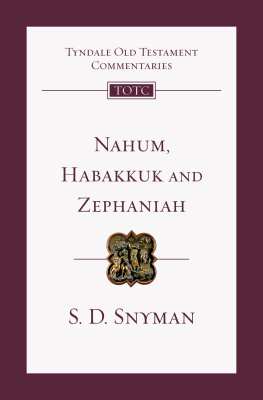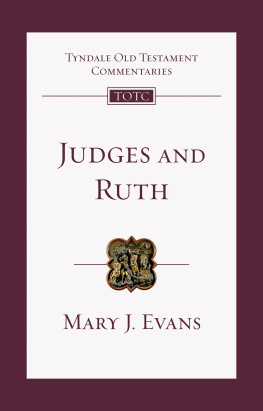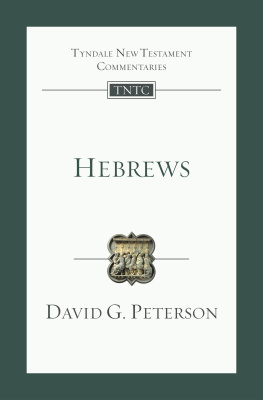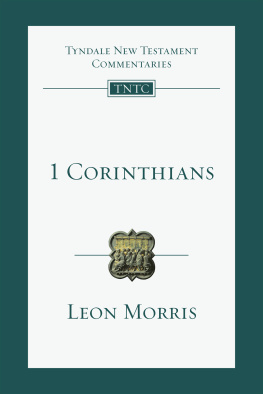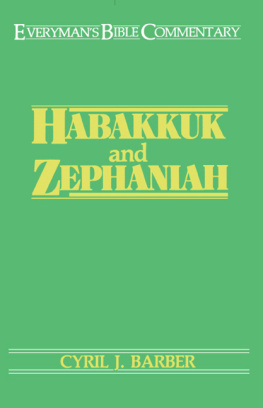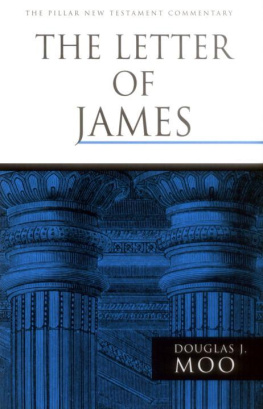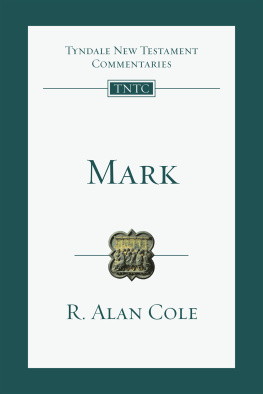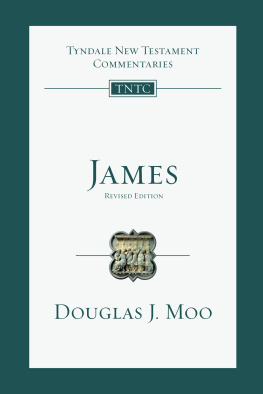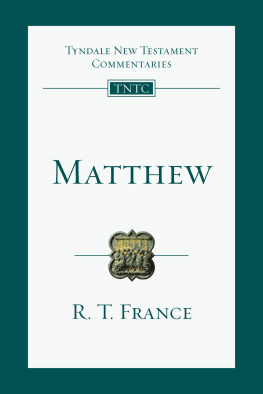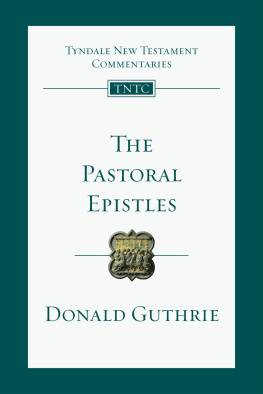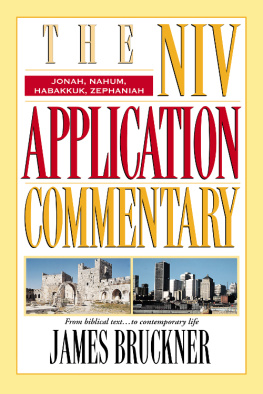Context
The context of the book is provided in its heading stating that the prophecies contained in it are to be related to the time of Josiah, king of Judah ( c. 640609 bc ).
Comment
The book of Zephaniah commences in a way familiar from other prophetic books (Jer. 1:2; Hos. 1:1; Joel 1:1; Jon. 1:1; Mic. 1:1; Hag. 1:1; Zech. 1:1; Mal. 1:1) by announcing the content of the book that follows as The word of yhwh . It is at once clear that what one can expect are not the thoughts or ideas of just another human being; what follows has to be considered as the word of yhwh and thus as divine revelation.
The word of yhwh is revealed to people by human agents in the case of the book of Zephaniah, by a person named Zephaniah . Nothing else is added so that we might know more about the person behind the book. We are not informed whether or not he was married (as was the case with Isaiah and Hosea), had children (as was the case with Isaiah, in Isa. 7:3; 8:3, and Hosea), where he came from (as for Amos, who came from Tekoa) or what age he was when he was called to be a prophet. His name means yhwh hides or yhwh has hidden, or perhaps yhwh has preserved or protected, but that does not tell the reader anything significant about his background. There is also no obvious relationship between the meaning of the name of the prophet and the content of the book named after him. The proper noun Zephaniah occurs elsewhere in the Old Testament. In 1 Chronicles 6:36 a Zephaniah is mentioned as an ancestor of Heman, a Levitical musician (1 Chr. 6:33). Jeremiah 21:1 identifies another Zephaniah as a priest. In Zechariah 6:10 a third Zephaniah is found, referred to as the father of Josiah, the high priest in Jerusalem after the exile. The name is thus not that uncommon in Israel/Judah and the links with the priesthood and Levitical circles are noteworthy. None of these other persons named Zephaniah can be identified with or related to Zephaniah the prophet introduced here in verse 1.
Unique to the book is the way in which he is introduced. In no other prophetic book is a prophet introduced by way of a genealogy going back no fewer than four generations ( Cushi , Gedaliah , Amariah , Hezekiah ). Zephaniahs father is given as Cushi . Cush in the Old Testament refers to the southern part of Egypt, the area known today as Ethiopia. It is a matter of dispute whether this is simply the name of his father or indicates his nationality as somebody coming from Cush. The name of Cushis father, however, is Gedaliah , clearly a Judean name, making it unlikely that Zephaniahs father was a Cushite. In later times a man bearing the name of Gedaliah was appointed governor in Judah during the Babylonian rule (Jer. 40 41). Next in Zephaniahs ancestral lineage was Amariah , of whom nothing is known. The last name is Hezekiah , the great-great-grandfather of Zephaniah. On hearing the name of Hezekiah, one immediately thinks of Hezekiah the king of Judah (725696 bc ). Was the purpose of the extended genealogy of Zephaniah to prove that this prophet was of royal descent? Hezekiah is known as a good king, and King Josiah is known for his reforms, so the mention of Hezekiah creates a nice link between two good, God-fearing kings in the troubled history of Gods people. However, if Hezekiah the king is intended, then the question arises as to why he is not specified as the king. Furthermore, according to 2 Kings 21 22, only two generations separated Hezekiah from Josiah (Manasseh and Amon), not three as is indicated here. Also, Amariah is not known to have been one of Hezekiahs sons. Finally, Hezekiah does occur elsewhere in the Old Testament as a proper noun (1 Chr. 3:23; Ezra 2:16; Neh. 7:21). The real reasons for the extended genealogy still elude us, as Hezekiah here does not appear to refer to the king.
The last part of the verse informs the reader that Zephaniah prophesied during the reign of Josiah , king of Judah . King Josiah is known as the king who introduced far-reaching reforms after the disastrous reigns of his predecessors (cf. the Introduction).
Meaning
As in the other prophetic books, what we have in this book is Gods speech in human language. How exactly God revealed his message to human beings remains a mystery. The text informs us that the word (literally) happened to Zephaniah. yhwh is the God who speaks to his people in difficult times, and he does so through prophets called to proclaim the word they have received from yhwh .
The historical framework of this first verse is important for the message in the book. yhwh s message brought by his prophet was meant for a specific time in the history of Gods people. Precisely because this word of yhwh was addressed to a specific period in history, it can also speak to his people in other periods of time.
Context
Verses 23 form an inclusio . This section starts with a pronouncement that yhwh will sweep away everything from the face of the earth , and it ends with a similar pronouncement that humans will be cut off from the face of the earth .
Comment
The actual prophecy starts with a universal message. A literal rendering of the verb in Hebrew ( sp ) used here has the meaning to gather. Everything will be gathered by yhwh . Just as the harvest on farmland is harvested or gathered in so that nothing is left behind, so yhwh will gather in everything on earth with nothing left behind. The entire earth will experience total destruction. This proclamation of universal judgment echoes what once happened in Genesis 6 when God also said that everything (humans, animals, creatures that move along the ground, birds) would be wiped from the face of the earth (Gen. 6:7). This is affirmed by the solemn oracle of yhwh ( niv declares the L ord ). Divine authority is at work. Creation will be undone.
Verse 3 continues the message of total and utter destruction by making use of the same verb. yhwh will sweep away humans, animals, birds and fish, adding detail to the initial threat of sweeping away everything .
Meaning
The book starts off with a majestic picture of yhwh as the universal judge of the whole of creation. yhwh is indeed the almighty Creator God who has the power also to undo his creation. Although it is not said, it is clear that the animals, birds and fish are not the reason for this terrible announcement of total destruction; it can only be human beings who are the guilty ones. They are the reason for this proclamation of doom upon the whole of creation. More specifically, it is the wicked who are to blame for this coming judgment. We as the inhabitants of the creation are in a similar way the reason why creation has to suffer, because of our sinful behaviour.
Context
After the announcement of universal judgment, attention shifts to Judah. Judah is accused of worshipping Baal and astral deities while still worshipping yhwh . Verse 5 is structured as an antithetic parallelism: (A) those who bow down... to worship the starry host, (A) those who bow down and (B) swear by yhwh , and who ... swear by Molech (B). Over against those who bow down to worship the host of heaven and swear by the foreign god Molech stand those who worship yhwh and swear by his name.
Comment
The announcement of the coming judgment is now narrowed down to Judah and the capital, Jerusalem. Impending judgment is made clear by the opening phrase of this unit: yhwh will stretch out his hand against his people. In the past yhwh had led them from Egypt with an outstretched hand (Exod. 7:5, 19; 9:22; 14:16, 26). This figure of salvation may also indicate yhwh s judgment (Isa. 14:2627; Ezek. 14:13; 16:27; 35:3). Just as humankind in general will be cut off from the face of the earth, so Judah and the inhabitants of Jerusalem will be cut off from this place (presumably the capital), as will all that remains of Baal worship. The priests who serve the idols will also be destroyed, even to the extent that they will have no descendants. Baal was the god of fertility and therefore deemed to be responsible for a good harvest from the land. The people will once again have to acknowledge the one and only God. It is yhwh , the covenant God, who meets the needs of his people, not Baal, the supposed fertility god.

